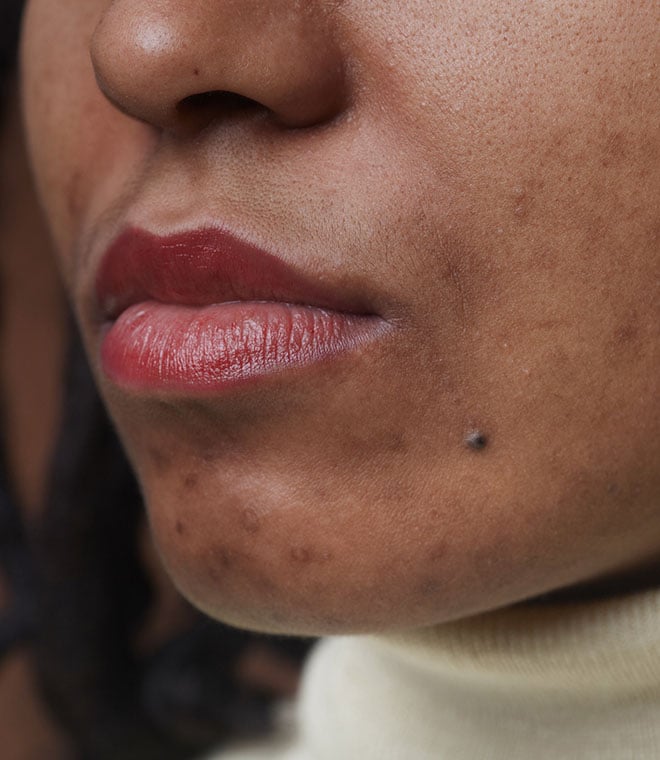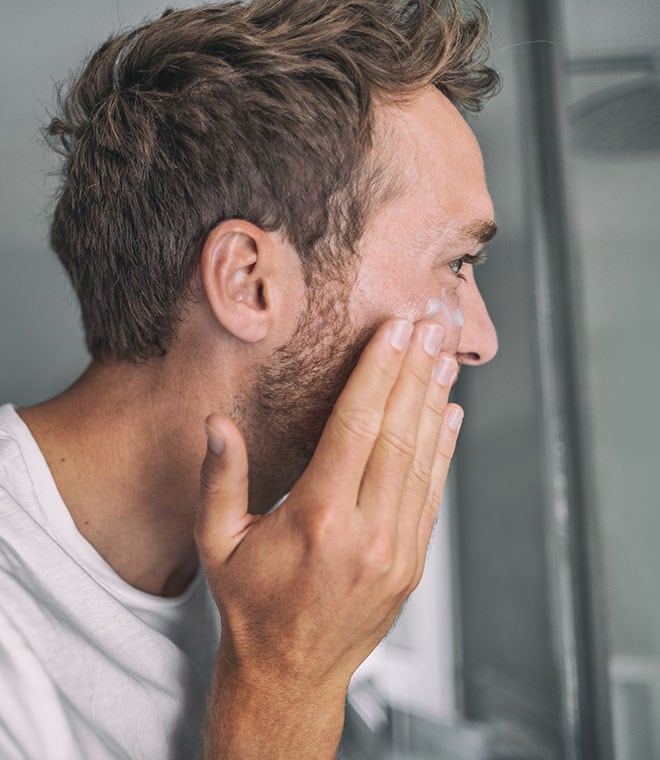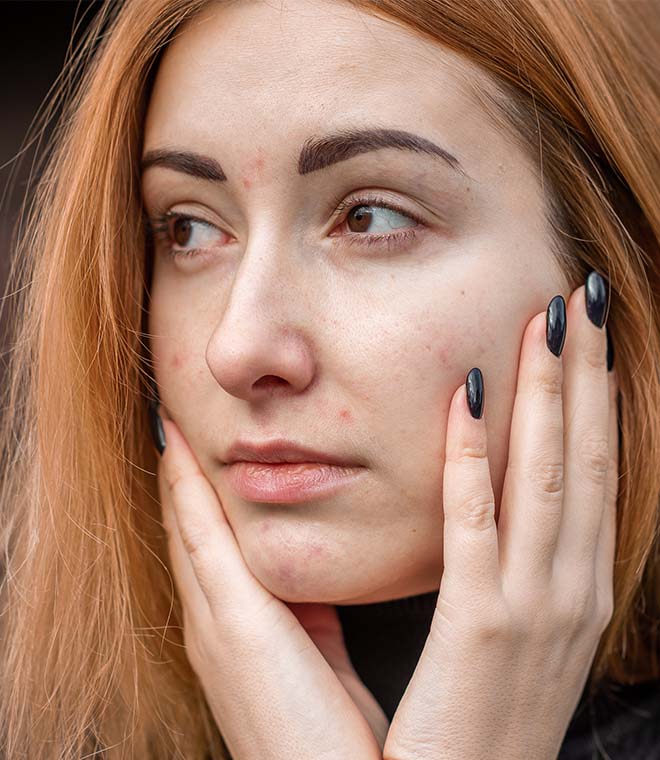Health
Acne medication: A guide
By Jenilee Matz, MPH Sep 11, 2023 • 5 min
Acne is a common, yet unsightly skin condition. Thankfully, there are many acne treatments available. With the right one, almost everyone can have clear skin. From over-the-counter (OTC) acne treatments to prescription acne medication, learn about options that can help treat acne.
How is acne treated?
Acne is commonly treated with good skin care, medication and possibly other treatments, such as laser or light therapy. Medications work to control acne, reduce new scars or clear up existing acne scars. It may take some trial and error, and a combination of medications, to find the treatment that works best for your skin. What’s more, your skin and its response to certain medications may change over time.
It takes acne lesions about eight weeks to form, so you may need to use a medication for two to three months to see its benefit. Acne medications can also cause side effects, especially if you have sensitive skin. Side effects can include skin redness, dryness, increased sensitivity to sunlight and other symptoms. Your pharmacist can recommend a non-comedogenic (meaning it won’t clog your pores) moisturizer and broad-spectrum sunscreen to help with these side effects. Make sure to use all acne medication as directed.
OTC acne treatments
If you have mild to moderate acne or sporadic breakouts, consider trying OTC acne products. They’re available in many forms, including face washes, creams, gels, foams and towelettes. Each product works in different ways, depending on its active ingredient. Common active ingredients in OTC acne products include:
- Salicylic acid keeps pores from getting clogged with debris that can lead to acne.
- Benzoyl peroxide kills acne-causing bacteria. It also helps to remove dead skin cells and excess oils from the skin.
- Alpha hydroxy acids, including glycolic acid and lactic acid treat acne by removing dead skin cells and decreasing inflammation. They also stimulate the production of new skin, which can help reduce acne scars and make pores look smaller.
- Sulfur removes excess dead skin cells and oils that can clog pores. Sulfur is often combined with other ingredients that target acne.
- Adapalene (Differin OTC) is a retinoid that prevents pores from becoming clogged.
Acne products contain varying concentrations of active ingredients. Consider trying a lower concentration first. For example, try 2.5% benzoyl peroxide before 10% benzoyl peroxide. Often, a product with a lower concentration of the active ingredient works just as well as those with higher concentrations, but with fewer side effects. As your skin gets used to a medication, you can slowly increase its concentration and how often you use the product. Know that in many cases, a combination of OTC products works better than a single product. If you need help choosing an OTC product or regimen, talk to your pharmacist.
Your dermatologist can help
If OTC products don’t clear up your skin or if you have more moderate to severe acne, see a dermatologist (skin care doctor). They can recommend an effective treatment plan that meets your skin’s needs. People with sensitive skin may have trouble finding acne products that work but don’t irritate their skin. In these cases, consider seeing a dermatologist, who can recommend acne treatments for sensitive skin specifically.
Adults may also struggle to find effective acne treatments. Products that worked well during their teen years may no longer be effective, or they may make acne worse. A dermatologist can put together an adult acne treatment plan for you.
Prescription topical acne medications
Prescription acne medications you apply to your skin include:
- Retinoids such as tretinoin (Avita, Retin-A), tazarotene (Tazorac, Avage) and adapalene (Differin, which is also available in an OTC strength). Retinoids work to treat acne by preventing hair follicles from plugging.
- Antibiotics for acne are usually combined with benzoyl peroxide to reduce the risk of antibiotic resistance. Examples include clindamycin with benzoyl peroxide (Benzaclin, Duac) and erythromycin with benzoyl peroxide (Benzamycin). Topical antibiotics kill bacteria and act as an anti-inflammatory by reducing swelling and redness.
- Dapsone (Aczone) is a gel that targets inflammatory acne.
- Azelaic acid (Azelex, Finacea) fights acne-causing bacteria and can help even out skin discoloration due to certain types of acne.
Prescription oral acne medications
Moderate to severe acne is often treated with medication you take by mouth, including:
- Oral antibiotics. Oral antibiotics for acne slow the growth of acne-causing bacteria. Your healthcare provider may prescribe a tetracycline (minocycline, doxycycline) or a macrolide (erythromycin, azithromycin). Your provider will prescribe the antibiotic for only a short time to help prevent antibiotic resistance.
- Birth control pills. Certain combination birth control pills can clear up acne in women. Note that it can take months to see this benefit, so your healthcare provider may recommend other short-term acne treatments.
- Anti-androgen medications. Spironolactone (Aldactone) can be an option for females if oral antibiotics don’t work. This drug works by stopping androgens from affecting oil-producing glands.
- Isotretinoin (Accutane, Amnesteem, Claravis and others). If you have moderate to severe acne that hasn’t responded to other medications, isotretinoin may be an option. This powerful oral retinoid cures acne in most people. However, it comes with the risk of serious side effects, including depression, irritable bowel disease, and miscarriage or serious birth defects if you take it during pregnancy. For this reason, healthcare providers only prescribe this medication with extreme caution, and people who take isotretinoin must participate in a monitoring program.
Good skin care is a must.
Acne treatment starts with a good skin care routine. Be sure to:
- Wash your face twice each day with a gentle, non-soap cleanser. Don’t scrub your skin because this can worsen acne.
- Use a moisturizer. Many acne treatments dry out skin. Look for a moisturizer labeled non-comedogenic so it doesn’t block pores.
- Protect your skin from the sun. Certain acne treatments can make your skin more sensitive to the sun. Try to stay out of the sun, and wear a broad-spectrum sunscreen with a sun protection factor (SPF) of 30 each day.
- Shower after sweating. Sweat and oil on your skin can trigger breakouts.
- Watch what touches your face. Keep phones, helmets, straps and other items off your face. Keep your hair clean and off your face, too.
- Don’t squeeze or pick at blemishes or touch your skin. This can make your acne worse and possibly lead to infection and scarring.
Talk to your healthcare provider about the risks and benefits of each acne medication. Keep in mind that finding the regimen that works best for you can take time and patience. Together, you and your provider can find a skin care regimen that clears up your skin.
Clinically reviewed and updated by Julie McDaniel, MSN, RN, CRNI September 2023.
Sources:
- https://www.uptodate.com/contents/acne-vulgaris-management-of-moderate-to-severe-acne?topicRef=42&source=see_link#H1564370188
- https://www.mayoclinic.org/diseases-conditions/acne/symptoms-causes/syc-20368047
- https://www.uptodate.com/contents/acne-beyond-the-basics#H23
- https://www.mayoclinic.org/diseases-conditions/acne/in-depth/acne-products/art-20045814
- https://www.aad.org/public/diseases/acne/really-acne/adult-acne
- https://www.aad.org/public/diseases/acne/derm-treat/treat
- https://www.mayoclinic.org/drugs-supplements/sulfur-topical-route/proper-use/drg-20066155?p=1
- https://www.mayoclinic.org/diseases-conditions/acne/diagnosis-treatment/drc-20368048
- https://www.aad.org/public/diseases/acne/skin-care/tips
- https://www.aad.org/public/diseases/acne/skin-care/habits-stop



